 Another year is wrapping up, and you’ve made great progress toward your goals. Maybe you’ve seen improved strength, increased endurance, higher energy levels, or you’re simply feeling happier with your personal growth. Reaching our goals helps build self-efficacy — the belief in our own resources and abilities to succeed. Whether you’ve hit a new mile time, lifted heavier weights, eaten salads for lunch every day, or established a consistent sleep schedule, you’ve developed confidence in your ability to maintain these habits.
Another year is wrapping up, and you’ve made great progress toward your goals. Maybe you’ve seen improved strength, increased endurance, higher energy levels, or you’re simply feeling happier with your personal growth. Reaching our goals helps build self-efficacy — the belief in our own resources and abilities to succeed. Whether you’ve hit a new mile time, lifted heavier weights, eaten salads for lunch every day, or established a consistent sleep schedule, you’ve developed confidence in your ability to maintain these habits.
As the holidays approach, though, you might be worried about cookies, festive meals, holiday drinks, and family gatherings derailing your progress. We’ve all been there, feeling like we’ve taken two steps back during those two festive weeks. This season often shifts our focus away from ourselves and more toward giving, sharing, and celebrating with others.
Don’t Let Setbacks Spoil the Eggnog
Success in taking steps toward your goals builds resilience, making it easier to bounce back if you face setbacks. And let’s face it, setbacks are inevitable. Those who live an active and healthy lifestyle often develop a high level of resilience, but for those just beginning their fitness journey, recovering momentum after the holidays can feel like a challenge.
Sometimes, the extra cookies “Santa ate” make it a bit harder to get back on track. But if we approach the holiday season with positivity and resilience, we’ll be less discouraged by the time we’ve taken away from our routines. Remember, your past successes prove that you’re capable of achieving your goals again.
Deck the Halls, But Don’t Overdo It
This holiday season, try using self-regulation to stay on track. Self-regulation is all about managing your choices and behaviors when faced with distractions or competing priorities. The holidays bring plenty of distractions, making it easy to stray from your wellness habits. But by planning ahead, you can balance holiday cheer with healthy decisions.
Here are some examples of self-regulation:
- Enjoy that extra serving, but balance it out. If you had a big holiday dinner, try eating a lighter breakfast the next morning or going for a walk with family.
- Plan for your indulgences. If you know a big meal is coming, consider fitting in a workout earlier in the day to offset the extra calories.
- Adapt your weekly routine. If you can’t fit in your usual sessions, try to maintain one or two to preserve your strength and endurance.
- Prioritize nutrient-dense foods. Choose protein-rich meals and vegetables over sugary or high-fat options when possible.
- Make adjustments as needed. Track your daily intake and balance calories where you can.
Planning in a Winter Wonderland
The best way to overcome common holiday barriers is to plan ahead. When you’re in the maintenance stage of a behavior, planning your response to potential obstacles boosts your chances of staying on track.
Before the holiday season begins, create a list of events, meals, treats, gatherings, and time constraints that might interfere with your progress. By identifying these in advance, you’ll be better prepared to moderate your decisions and keep moving forward without feeling overwhelmed.
The Gift of Support
During the season of giving, you also have the added benefit of being surrounded by family, friends, and peers. These support systems can play a big role in helping you stick to your habits while adding to your happiness.
Lean into this support! Invite a family member to join you for a workout at home instead of stepping away for 45 minutes at the gym. Try baking healthier holiday treats together or swapping out traditional dishes for more nutritious alternatives.
Social support makes it easier to maintain your habits by fostering a positive environment and adding fun and interaction to your routine. Plus, involving your friends and family in your healthy lifestyle could inspire them to adopt some of these habits too!
NIFS is offering a new FREE challenge to help you stay on track this holiday season – the Holiday Hustle Challenge! Sign up today and make this holiday season your healthiest yet!

 Starting your fitness journey is always an exciting step forward, but it is essential to make sure you are listening to your body and prioritizing your recovery and self-care. Many people tend to neglect their bodies' needs and push themselves past their limits, which isn’t necessarily a bad thing. The importance of recovery and self-care play a crucial role in ensuring your long-term success in the gym, and one mistake can lead to a possible injury that can take away and/or limit that progress.
Starting your fitness journey is always an exciting step forward, but it is essential to make sure you are listening to your body and prioritizing your recovery and self-care. Many people tend to neglect their bodies' needs and push themselves past their limits, which isn’t necessarily a bad thing. The importance of recovery and self-care play a crucial role in ensuring your long-term success in the gym, and one mistake can lead to a possible injury that can take away and/or limit that progress.
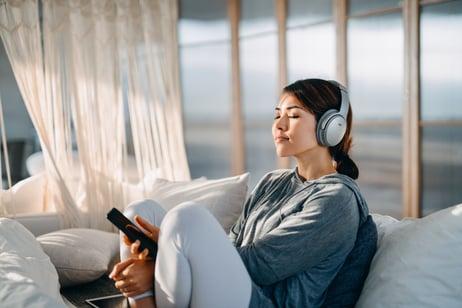 In today’s busy world, it’s easy to put self-care on the back burner. When there are seemingly endless deadlines at work that must be met, household chores to tackle, and a calendar that is jam-packed it can be extremely difficult to even think about taking time out for ourselves. This is why we must take just a few minutes out of our days. And, as Millennial as it may sound, we need to begin to give some love to ourselves so that we not only exist, but live life to the fullest.
In today’s busy world, it’s easy to put self-care on the back burner. When there are seemingly endless deadlines at work that must be met, household chores to tackle, and a calendar that is jam-packed it can be extremely difficult to even think about taking time out for ourselves. This is why we must take just a few minutes out of our days. And, as Millennial as it may sound, we need to begin to give some love to ourselves so that we not only exist, but live life to the fullest.
 It’s safe to say that 2020 has been one a heck of a year (and it’s barely half over!)—the good, the bad, the ugly. At times, it’s felt as if an entire decade has passed. No matter how you slice it, the fact that we’ve experienced something as novel as a global pandemic still feels weird to say, think about, and sometimes fully appreciate. It has been a tumultuous time outside of COVID-19 as well, and every person has had a unique experience, a unique perception, and unique challenges along the way.
It’s safe to say that 2020 has been one a heck of a year (and it’s barely half over!)—the good, the bad, the ugly. At times, it’s felt as if an entire decade has passed. No matter how you slice it, the fact that we’ve experienced something as novel as a global pandemic still feels weird to say, think about, and sometimes fully appreciate. It has been a tumultuous time outside of COVID-19 as well, and every person has had a unique experience, a unique perception, and unique challenges along the way. 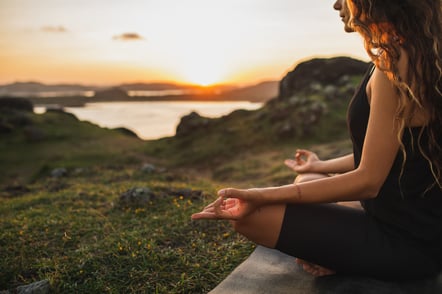 There seems to be an expectation that women are supposed to do it all and not complain. That women are supposed to be wives and mothers, work full time, juggle friendships, have a social life, have time for themselves, so on. Society is ever changing, and we are supposed to keep up with it. Let’s rewind some years ago where most women stayed at home with their children, and taking care of their household was their only responsibility.
There seems to be an expectation that women are supposed to do it all and not complain. That women are supposed to be wives and mothers, work full time, juggle friendships, have a social life, have time for themselves, so on. Society is ever changing, and we are supposed to keep up with it. Let’s rewind some years ago where most women stayed at home with their children, and taking care of their household was their only responsibility. 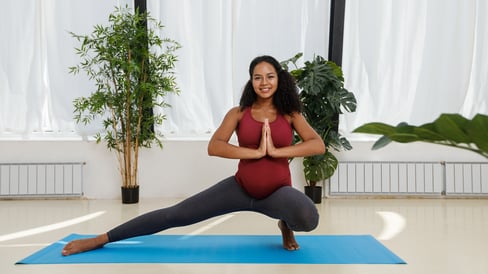 Today, the realities of the human body immediately after giving birth are less mysterious than ever, a development some attribute to a changing climate around motherhood. In the past women felt like they couldn’t talk about the after-effects of having a baby, let alone caring for other children at the same time.
Today, the realities of the human body immediately after giving birth are less mysterious than ever, a development some attribute to a changing climate around motherhood. In the past women felt like they couldn’t talk about the after-effects of having a baby, let alone caring for other children at the same time. 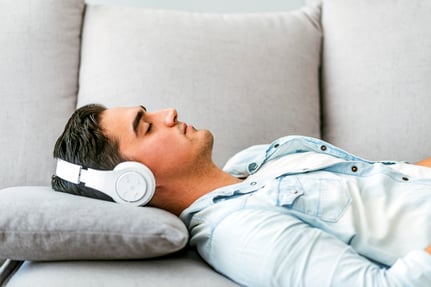 Personal trainers are people, too (well, at least when no one is looking!). In reality, there are a lot of new bridges we, as a society, are crossing every single day. As a trainer, my goal is to put all my effort into making sure that my clients are being healthy with fitness and wellness as a priority. With the lockdown upon us, finding new ways to get this job done is a challenge, but so is making sure that you are finding time for yourself.
Personal trainers are people, too (well, at least when no one is looking!). In reality, there are a lot of new bridges we, as a society, are crossing every single day. As a trainer, my goal is to put all my effort into making sure that my clients are being healthy with fitness and wellness as a priority. With the lockdown upon us, finding new ways to get this job done is a challenge, but so is making sure that you are finding time for yourself. 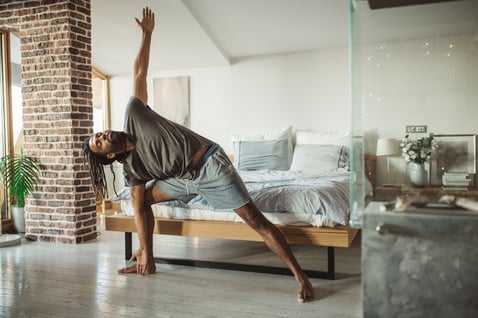 There are no definitive right answers on how we are supposed to individually succeed during a pandemic. We all cope, struggle, and win the day in our own ways. We can all feel a little lost and confused at times, and that’s completely normal as we cross bridges into territory we have never experienced in our lives.
There are no definitive right answers on how we are supposed to individually succeed during a pandemic. We all cope, struggle, and win the day in our own ways. We can all feel a little lost and confused at times, and that’s completely normal as we cross bridges into territory we have never experienced in our lives.